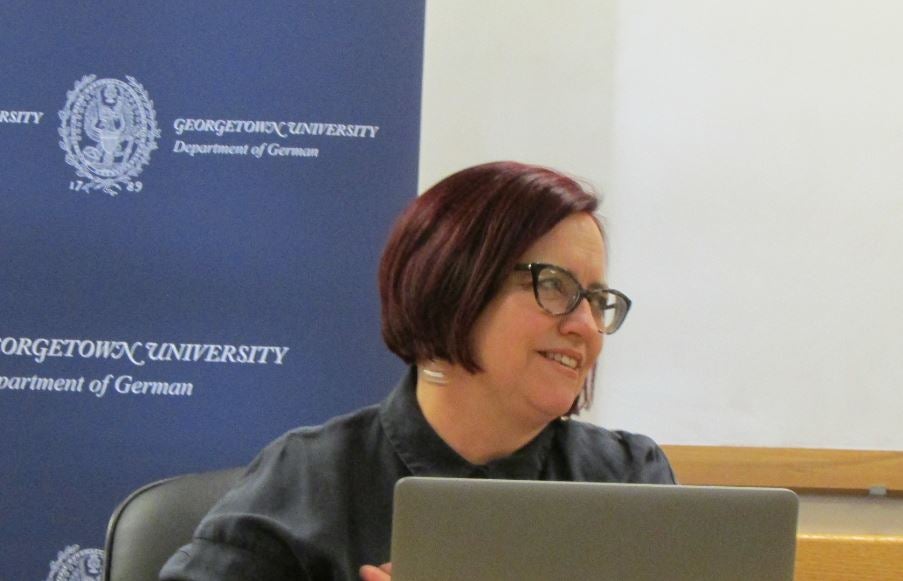Disorganizing Genre in Maren Ade’s Screwball Tragedy Toni Erdmann: Lecture with Dr. Hester Baer
This talk with Dr. Hester Baer investigated the relationship between changing socioeconomic contexts and the emergence of new aesthetic forms in contemporary German cinema, focusing particularly on the critically acclaimed box-office hit Toni Erdmann (2016), written and directed by Maren Ade. Dr. Baer contended that Ade’s film is a landmark in the cinematic representation of neoliberalism. In its narrative, the film strives to depict the contemporary economy in all of its facets and employs a father-daughter generational narrative to track the transformations of ordinary life in the present. As she suggests, Toni Erdmann is a “screwball tragedy” reflecting on a formal level the insecurity of the present that forms the matrix of the narrative. Her analysis attends particularly to Toni Erdmann’s sustained focus on the way economic transactions shape and are shaped by normative conceptions of nation, ethnicity, race, class, gender, and sexuality today.

Hester Baer is Associate Professor and Head of Germanic Studies at the University of Maryland, where she also serves as a core faculty member in the Film Studies and Comparative Literature programs. Baer has published widely on gender and sexuality in film and media; historical and contemporary feminisms; and German literature and culture. She is the author of Dismantling the Dream Factory: Gender, German Cinema, and the Postwar Quest for a New Film Language (2009) and the co-editor of German Women’s Writing in the 21st Century (2015). Baer is currently completing a book, German Cinema in the Age of Neoliberalism, 1980-2010, and she is the co-editor of a special issue of the feminist film journal Camera Obscura on “German Women’s Film Authorship in Neoliberal Times,” which will appear in Fall 2018.